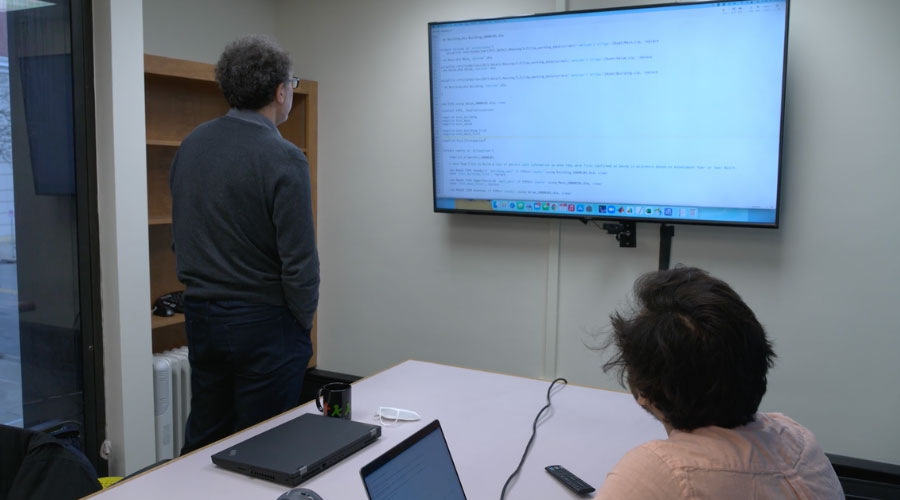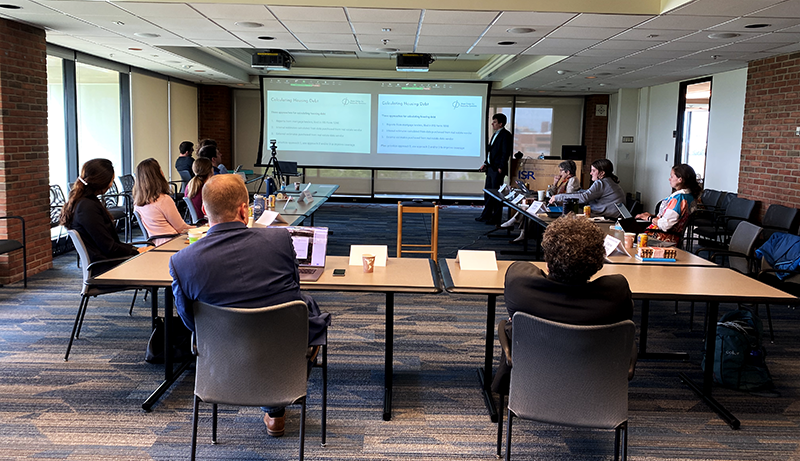WAM: Wealth and Mobility Study
Building a New Wealth Data Infrastructure
The United States has the highest degree of wealth inequality in the developed world and yet its level of wealth inequality continues to rise. Who has wealth and how it’s obtained is also marked by drastic ethnic and racial inequality. Wealth inequality has far-reaching effects on economic security as well as the opportunities of the next generation. Understanding exactly how wealth is distributed and transmitted across generations has been challenged by gaps in our national data infrastructure.
Learn more
The Stone Center of Inequality Dynamics is working to change that in partnership with the Internal Revenue Service (IRS). The Wealth and Mobility (WAM) study is a project funded by a four-year grant from the Bill & Melinda Gates Foundation.
“We have a very limited understanding of geographic differences in the distribution and transmission of wealth within the U.S.,” explained Fabian Pfeffer, director of the project. “We’re working on a new dataset that will provide estimates of income and wealth levels, inequality, and mobility across different U.S. locations, which will allow other researchers, policy-makers, and community members to assess the wealth situation of communities across the United States.”
The study launched in September 2021. An interdisciplinary team of CID researchers and research partners at the IRS will create proxy measures of wealth for all U.S. individuals and link them across generations. They will do so through direct, secure access to IRS tax records, combined with other large administrative data sources, such as residential real estate property records. Pfeffer and WAM Co-Director Pablo Mitnik are leading the effort but several other CID faculty and students are engaged too, including Co-Investigator Joe LaBriola, Asher Dvir-Djerassi, and Robert Manduca.
“Our study will provide new data on the geographic variation of wealth, wealth inequality, and wealth mobility to significantly expand our understanding of local variation in inequality and mobility, which so far has been mostly derived from income-based comparisons,” said Pfeffer.
To support a user-friendly presentation of data, the team is collaborating with data visualization experts to build an interactive online platform that will ensure broad access to the data for other researchers, decision-makers, and the public.


The publicly-accessible WAM dataset will contain:
Wealth and income information for various U.S. locations (cities, counties, etc.), including measures of
- Levels
- Inequality
- Segregation
- Intergenerational Mobility
“The creation and analysis of intergenerationally linked U.S. tax data has revolutionized the study of income inequality and mobility,” added Mitnik. “We will build on this scientific breakthrough to expand our understanding of the differences between income and wealth, in particular in terms of levels and patterns of inequality and the transmission of advantages across generations.”
While most prior efforts to derive wealth measures from U.S. tax records have been focused on the very wealthy, this study also seeks to capture wealth across all levels. Housing wealth is central to this task as it constitutes the main asset held by a large share of U.S. households. “By using estimates of home values and mortgage debt to compute our measures of wealth, we will be able to provide a more comprehensive picture of the distribution of wealth across the full population,” noted WAM Co-Investigator Joe LaBriola.
The resulting data will eventually help researchers address questions related to the geographic influences that are unique to wealth, such as local housing markets.
“We expect large variation in wealth across the U.S. and hope that our data prompt a broad set of researchers to investigate entirely new aspects of the geography of inequality in this country,” said Robert Manduca, assistant professor of sociology at U-M and study member.

About WAM
Through direct access to individual-level and full population IRS tax records, the Wealth and Mobility (WAM) study creates proxy measures of the wealth holdings of all U.S. taxpayer units and links them across generations, extending pioneering work by Raj Chetty and collaborators as well as Emmanuel Saez and Gabriel Zucman.
WAM will also distribute geographic aggregates of these measures to the scientific research community and broader public. This new public data infrastructure will support a wide set of novel analyses of wealth inequality and mobility. WAM puts a particular focus on the user-friendly distribution and presentation of these estimates to make them easily accessible to a wide audience, including to local, state, and federal policymakers, community organizations, journalists, and the broader public.
We will analyze the level, inequality, segregation, and intergenerational mobility of wealth across the full U.S. population, allowing us to answer questions such as
- How does the overall distribution of wealth vary across states, counties, and Census tracts?
- How high is the intergenerational correlation in wealth?
- Which U.S. areas show higher and lower intergenerational wealth mobility?
WAM Scientific Advisory Board
Bringing together leading social scientists and thought leaders, WAM Scientific Advisory Board Members serve a two-year term. The Board advises the project team on central scientific and strategic questions. It consists of five external board members, drawn from multiple disciplines across the country, and three members from the University of Michigan faculty. The Board is chaired by Prof. Joel Slemrod, University of Michigan.
CID Team Members
Fabian Pfeffer
Pablo Mitnik
Joe LaBriola
Asher Dvir-Djerassi
Carrie Jankowski
Robert Manduca
IRS Collaborators
Victoria Bryant
Tom Hertz
Alissa Graff